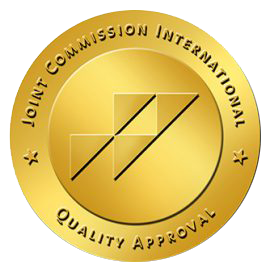
Mrs. Maya Gharios: Breastfeeding: truths revealed!
Mrs. Maya Gharios:
Breastfeeding: truths revealed!
Are you a soon to be mother? Do you have unanswered questions about the phase following pregnancy?
Mrs. Maya Gharios, a Clinical Dietitian at Mount Lebanon Hospital, will tell you everything you need to know about the benefits of breast-feeding, including weight loss!
Does breast-feeding aid in weight loss post-delivery, and how many calories are needed to accomplish it?
Weight loss is one of the many benefits of breastfeeding, as energy is used for the production of breast milk. It takes an average of 9-months to return to your pre-pregnancy weight, however, this differs between women. In fact, weight loss after pregnancy is based on several factors, which include body type, metabolism (how many calories your body burns), diet, and activity level.
Studies have shown that a healthy breastfeeding woman requires 2000-2500 Kcal per day to maintain an adequate milk supply. Hence, it is required to consume an additional 300 Kcal per day over the first six months, and an additional 400 Kcal per day during the second six months. In order to keep your milk supply abundant and healthy, it is advised to avoid harsh diets, especially within the first two months of breastfeeding.
What are the best nutrients to consume while breastfeeding?
If you are breast-feeding, you are giving your baby nutrients that will promote his or her growth and health.
There are 4 key nutrients that are vital for breast-feeding women to consume:
- Water is essential for milk production, hence it is recommended to drink around 6 to 8 cups per day.
- Animal proteins (meat, poultry, fish, eggs, yogurt, milk…) are crucial for both the mother and their baby’s cells growth and renewal.
- Iron is highly abundant in green leafy vegetables (spinach, mloukhiyeh, hindbeh…) and meat – preferably cooked to avoid bacterial contamination.
- Calcium (milk, cheese, yoghurt…) is necessary for the composition of the milk and the healthy bone growth of the baby.
Nevertheless, it is advisable to avoid certain foods that can lead to discomfort, these include:
- Gas forming foods (cauliflower, legumes…) easily make their way to breast milk and cause disturbances to your baby such as colic.
- Alcohol and caffeine increase the baby’s alertness. However, if they must be consumed, it is advised to do so after breastfeeding, allowing the breast-feeding mother a minimum of three hours before the next feed.
Can certain foods help increase breast milk production?
Breast milk is the perfect food for babies, and having an adequate supply is a concern for many mothers. Be reassured that almost all women can produce milk for their babies with little or no trouble. Until now, it has not been proved that certain foods have the ability to increase milk production. However, studies have shown that breast milk production is controlled by a system of supply and demand. Breast tissue is stimulated when the baby is correctly latched onto the breast and sucking. The breast glands send a message to the brain informing it of the need for milk production, and breast milk is ejected into your baby’s mouth once he or she latches.
There are several recommended types of food that contain added benefits:
– Liquids (water, juices, soups…) are needed in abundance to increase the quantity of milk produced
- Fiber rich foods (whole grains, oatmeal…)
- Antioxidants (fruits, vegetables…) contain a wide variety of vitamins and minerals that are necessary for the healthy growth of your baby
- Omega 3 (fish, almonds, walnuts…) is important for the healthy development of your baby’s brain, eyes, and immunity.
It is important to know that the role of ‘meghle’ in increasing breast milk production is a MYTH! In fact, like any other dessert, overconsumption will compromise weight loss and may lead to weight gain in some cases. Hence, it is recommended to limit your intake of meghle to a maximum of one cup per day, while nuts may be used as a topping, given their benefits.
Why is breastfeeding crucial for the first six months of life?
Breastfeeding comes with an endless count of advantages that extend well beyond basic nutrition for both the mother and baby, making it vital for the first 6 months of life. The added benefits of breastfeeding include the following:
- Fresh, sterile, and available anytime at the adequate temperature
- Rich in water, thus there is no need to worry about your baby’s water intake
- Rich in all the nutrients and minerals needed for healthy growth
- Supports the development of IQ and cognitive abilities of your baby, as proven by a large number of studies
- Protects against infections, diarrhea, pneumonia, and aids in a faster recovery from illnesses
- Allows healthy and adequate weight gain as compared to a formula-fed baby
- Increases mother-baby bond
- Reduces the risk of cancer, mainly ovarian and breast cancer
- Facilitates post pregnancy weight loss
Are there specific recommendations for breastfeeding premature babies or low birth weight infants?
When a baby is born prematurely or with a low birth weight, their immune system and organs are immature. This puts them at a greater risk of diseases and infections, making breastfeeding compulsory, as it is even more important for premature and low birth weight babies.
The mother’s body will produce a quantity of milk that is sufficient for their baby’s birth age, and therefore, it will be higher and richer in nutrients than is required. This allows the mother to provide adequately to their baby’s increased needs. Mothers are advised to immediately start pumping breast milk that will then be bottle fed to their child while they are in the incubator.
A final recommendation to all breastfeeding women: it is strongly advised to feed your baby the first breast milk that you produce, known as the colostrum. This milk amounts to only 1 or 2 tablespoons and has a thick texture with a yellowish color. Despite its very small quantity, it is extremely rich in antibodies, hence its major role in the development and strength of your newborn’s immune system.
Last, it is important to breastfeed as long as you are able to produce milk, and enjoy every single moment of it, as it is a wonderful and joyful experience!
Mrs. Maya Gharios
Clinical Dietitian
Leave a reply






